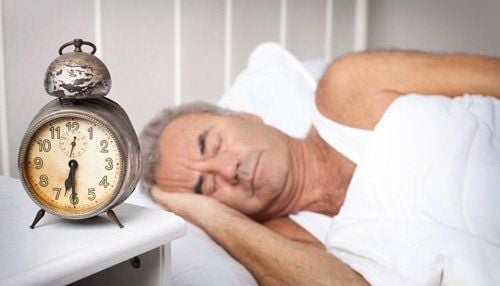This is an automatically translated article.
There are many studies that show that your sleep condition is related to type 2 diabetes. So how do falling asleep, lack of sleep or not getting enough sleep is related to the disease that causes so many problems for diabetes? this patient?1. An overview of type 2 diabetes
Type 2 diabetes is a chronic disease that usually occurs in adults aged 40 years and older. This is non-insulin dependent diabetes where the pancreas is still working and secreting insulin normally, but for some reason the glucose in the blood cannot be used by the cells, causing the sugar levels to rise and fall. affect the patient's health.The most dangerous complication of diabetes is gangrene because the cells cannot absorb the glucose in the blood and gradually die. Necrosis is most common in the lower body. Besides necrosis, diabetic ketoacidosis is also a very dangerous complication, it can be life-threatening because ketones make the blood acidic and affect many organs, including the brain.
In addition to the above two dangerous complications, type 2 diabetes can also cause other complications such as: cardiovascular disease, neurological disease, kidney disease, eye damage, foot damage, oral skin disease and especially dangerous complications in pregnancy such as miscarriage, stillbirth...
Type 2 diabetes is diagnosed using HbA1c test, random blood sugar test, blood sugar test fasting, oral glucose tolerance test...
To treat type 2 diabetes, patients need to take measures to lose weight, eat healthy, have an appropriate exercise regimen, and use medication diabetes treatment or insulin therapy as well as blood sugar monitoring as prescribed by your doctor.

Ngủ gật và đái tháo đường typ 2 có mối liên hệ mật thiết với nhau
2. Why do people with type 2 diabetes often fall asleep?
Sleep is a natural state of the body that is programmed every night to restore health and brain after a tiring day of work or study and have enough energy for the next day.However, if you've slept all night but still doze during the day, affecting your work or study process, it's extremely important to find the cause for timely handling.
For people with type 2 diabetes, frequent dozing may be related to excessive hypoglycemia. Blood sugar, also known as blood glucose, is a way to refer to the concentration of glucose in the blood and is the source of energy for each person's daily activities.
People with type 2 diabetes often experience excessive hypoglycemia with symptoms such as shaking hands, nervousness, sweating... and especially drowsiness. You can ask a loved one to check your blood sugar while you are asleep, if it is small thanks to 3.9mmol/L, it is necessary to take measures to treat hypoglycemia in time.

Ngủ gật thường xuyên có thể liên quan đến hạ đường huyết quá mức
3. Why lack of sleep or not enough sleep can cause type 2 diabetes
For health, sleep also plays a very important role, the benefits of sleep can be mentioned such as helping the brain work more efficiently, maintaining shape, strengthening the immune system, reducing stress, reduce the risk of certain diseases...“So why is lack of sleep or not enough sleep a contributing factor to type 2 diabetes?”
According to scientists from Boston University (USA), lack of sleep can disrupt the body's biological clock, which regulates the body's natural sleep or wake cycle. This will increase the level of the hormone cortisol and can cause stress and imbalance in the body's sugar. In addition, insomnia will cause nervous system disorders and affect the hormone that controls blood sugar in the body.
Therefore, people who do not get enough sleep or are sleep deprived are twice as likely to develop type 2 diabetes than people who sleep 7-8 hours.
For adults, not getting enough sleep is linked to type 2 diabetes, and in children, getting enough and enough sleep can also reduce the risk of developing this disease in the future.
A study at the Children's Heart and Health Research Center in the UK showed that the longer a child sleeps, the lower the insulin levels, insulin resistance and glucose levels. According to the scientists, decreased levels of insulin resistance in childhood will have the effect of reducing the risk of developing type 2 diabetes in about 10 years later.
The links between sleep and type 2 diabetes are still very much open to study and research. Therefore, to have a healthy body, adults should sleep about 7-9 hours a day and children should sleep 10-12 hours a day.
Currently, Vinmec International General Hospital offers a diabetes screening package - dyslipidemia for customers with signs of diabetes, type 2 diabetes for the purpose of diagnosing and screening the disease. Management is based on quantitative blood tests, applying oral therapy (for customers with suspicious fasting blood sugar results)... From there, the doctor will draw conclusions and give preventive advice. disease prevention as well as appropriate and scientific treatment for the patient.
Please dial HOTLINE for more information or register for an appointment HERE. Download MyVinmec app to make appointments faster and to manage your bookings easily.













